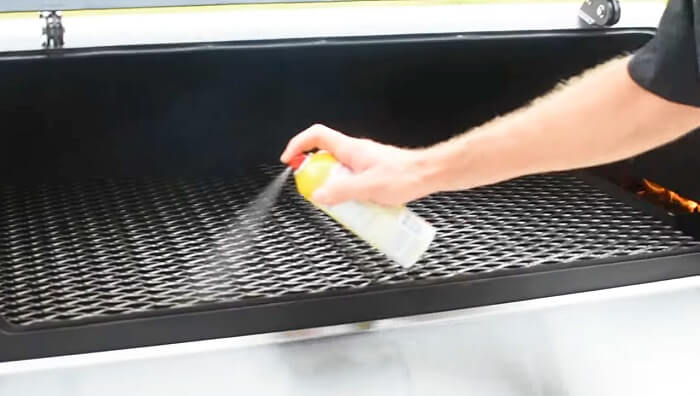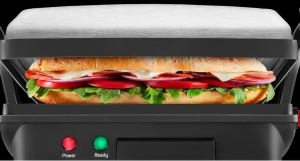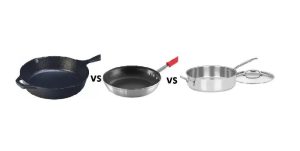What Happens When You Don’t Season a Smoker?
Smoking food is a great way to bring out the flavor and create a delicious meal. However, if you don’t season a smoker before you begin, the results could be disastrous. Without seasoning, you risk ruining the food and potentially damaging the smoker itself.
In this article, we’ll explore what happens when you don’t season a smoker, and how to properly season one before use.
The Risks of Not Seasoning a Smoker
Failing to properly season a smoker can have significant consequences. Not seasoning a smoker will lead to a buildup of grease and grime in the smoker’s interior.
This accumulation of debris can cause the smoker to smoke less efficiently, leading to a decrease in the quality of the food cooked in it. The buildup of grease can even cause the smoker to become a fire hazard.
Not only will this downtime cost precious time, but it can also cause a lot of expensive damage. Properly seasoning a smoker will help to prevent these issues, as well as help to ensure that the smoker provides the best-tasting food.
By taking the time to season a smoker, one can be sure that they will get the most out of their cooking experience.
Steps to Season a Smoker for Optimal Performance
Seasoning a smoker is a crucial part of preparing it for optimal performance. The oil used to season the smoker acts as a protective barrier to keep rust and other damage away. Seasoning also helps to create a non-stick surface that makes it easier to clean and care for. Here are some steps to season a smoker for optimal performance.
Step 1: Clean the Smoker
Before seasoning the smoker, it is important to make sure that it is clean. This includes removing any previous seasoning and any rust or other damage. Use a soft-bristled brush, warm soapy water, and a cleaning cloth to clean the smoker.
Step 2: Apply Oil
Once the smoker has been cleaned, it is time to season it. Use a high-heat oil such as vegetable oil or canola oil, and apply it liberally to all surfaces of the smoker. Use a clean cloth to spread the oil evenly and make sure that all surfaces are completely coated.
Step 3: Heat the Smoker
Once the smoker is completely coated with oil, it is time to heat it up. Turn the smoker on and heat it up to a temperature of 350-400F. Let the smoker heat up for at least one hour to ensure that the oil is completely absorbed into the metal.
Step 4: Cool and Clean
Once the smoker has been heated up and the oil has been absorbed, it is time to cool it down and clean it up. Turn off the smoker and let it cool down completely. Use a clean cloth to wipe off any excess oil and make sure the smoker is completely clean.
Now that the smoker has been seasoned, it is ready to use. When using the smoker, it is important to make sure that it is kept clean and that it is properly oiled every time it is used. This will ensure that it is always performing at its best and will last for years to come.
Read More: Grilling on a Traeger Smoker: A Step-by-Step Guide
Essential Tips for Maintaining a Well-Seasoned Smoker
If you don’t season a smoker, the consequences can be disastrous. Without proper seasoning, the smoker will be prone to rust, which can cause the surface to flake off and contaminate food.
This can also lead to the buildup of harmful bacteria, which can cause food poisoning. Furthermore, unseasoned smokers are more likely to be prone to smoke and temperature fluctuations, resulting in uneven cooking of food.
An unseasoned smoker will not have the same flavor as one that is properly seasoned, as the smoke will not have had time to penetrate the metal. To prevent these issues, it is essential to season your smoker properly. This will help ensure that your food is safe and flavorful.

Common Mistakes to Avoid When Seasoning a Smoker
Failing to season your smoker before using it can have some serious consequences. Without proper seasoning, your food will not have the same smoky flavor, and it is more likely to stick to the surface of the smoker.
The metal surface of the smoker can also rust, corrode, and become damaged over time. Any bacteria or germs that are present in the smoker can become embedded in the surface and cause food poisoning.
It is important to season your smoker before you use it for the first time. This process involves cleaning the surface and applying oil or grease to the metal. This will help to create a protective barrier between the food and the metal surface of the smoker. The oil also helps to keep the food from sticking and gives it a smoky flavor.
It is important to clean your smoker after each use. This will help to prevent any bacteria or germs from becoming embedded in the surface and will also help to prevent rusting and corrosion. With proper seasoning and regular cleaning, you can ensure that your smoker is always in top condition.
FAQs
Q1. What Happens If You Don’t Season a Smoker?
If you don’t season a smoker, you may end up with a smoker that has difficulty reaching the desired cooking temperatures as well as a smoker that has a metallic taste. When you season a smoker, you are essentially coating the interior walls with a layer of oil which will create a non-stick surface when cooking.
This will also help protect the smoker from rust and prevent food from sticking to the walls. Not seasoning a smoker can also lead to a decrease in the quality of the smoke flavor as the walls of the smoker will not have had the time to absorb any of the smoke.
Q2. How Do You Season a Smoker?
Seasoning a smoker is a relatively simple process. First, you will need to clean the smoker with a mild detergent, rinse it off, and then dry completely. Next, apply a light coating of vegetable oil on the interior walls of the smoker. Once the oil is applied, preheat the smoker to a high temperature (around 300°F) for one hour. After this, you can then reduce the temperature to the desired level and cook as normal.
Q3. What Is the Best Temperature to Season a Smoker?
The best temperature to season a smoker is around 300°F. This high temperature helps to ensure that the oil bonds to the interior walls of the smoker and creates a non-stick surface when cooking. It is important to remember to not exceed this temperature as doing so could cause damage to the smoker.
Q4. What Are the Benefits of Seasoning a Smoker?
The benefits of seasoning a smoker include: reducing the chance of food sticking to the walls of the smoker, helping to create a more flavorful smoke, and protecting the smoker from rust. Seasoning a smoker also helps to ensure that the smoker is able to reach and maintain the desired cooking temperature.
Q5. How Often Should You Season a Smoker?
It is important to season a smoker at least once a year, or whenever you are cooking with it for the first time. This will help to ensure that the smoker is able to reach and maintain the desired cooking temperatures as well as help to create flavorful smoke.
Q6. What Is the Best Type of Oil to Use When Seasoning a Smoker?
When seasoning a smoker, it is best to use light vegetable oil such as canola or peanut oil. Avoid using any type of oil that is too thick as this could cause smoke to be trapped in the smoker, leading to a poor smoke flavor.
Q7. Does Seasoning a Smoker Help to Prevent Rust?
Yes, seasoning a smoker can help to prevent rust as the oil helps to create a protective layer on the interior walls of the smoker. This helps to prevent any moisture from being absorbed by the walls, which can lead to rust.
Conclusion
It’s important to season your smoker before you use it. If you don’t, the food you cook will likely be dry, tasteless, and not as enjoyable. You may even end up with a smoker that is ruined due to rust and corrosion.
Seasoning your smoker ensures that it will be properly protected from the elements and will last you for years to come. So, don’t forget to season your smoker – it’s essential for great-tasting, long-lasting results!





